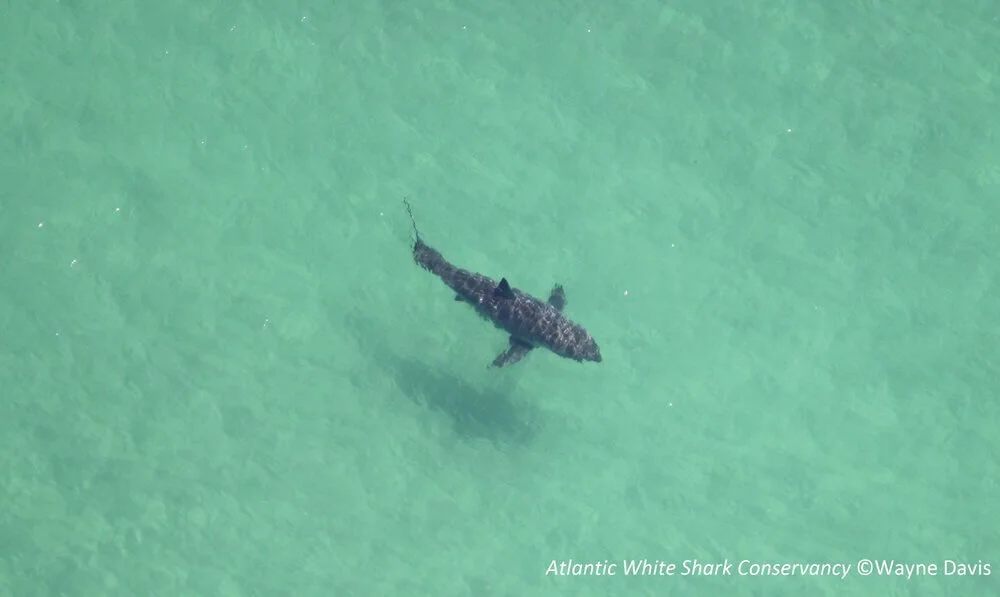ATLANTIC WHITE SHARK RECOVERY
White sharks were designated as a prohibited species (no retention allowed) in most federal waters in 1997 and in Massachusetts state waters in 2005. Beforehand, white sharks were hunted and considered a trophy hunt for recreational fisheries. In the past decade, white shark sightings and catch records in the broader Northwest Atlantic have increased, which suggests some level of population recovery, but stock status remains uncertain. The increased presence of white sharks close to shore off of Cape Cod has been tied to increases in seal populations.
Photo by Wayne Davis
GRAY SEAL RECOVERY
Archeological data, indigenous knowledge and anecdotal evidence suggest that for thousands of years gray seals and humans inhabited the waters between Connecticut and Maine. In the 1600s, hunting of seals by people became so widespread that populations began to decline. When Maine and Massachusetts implemented legal bounty hunts in the 1800s, gray seals were extirpated, or extinct at a local level in the United States. Through the twentieth century, seal populations remained low in the western North Atlantic. It wasn’t until the hunting and killing of seals was outlawed in Massachusetts in the 1960s and in the entire country in 1972, via the Marine Mammal Protection Act, that seals began to recolonize the region.
Photo by John Chisholm



